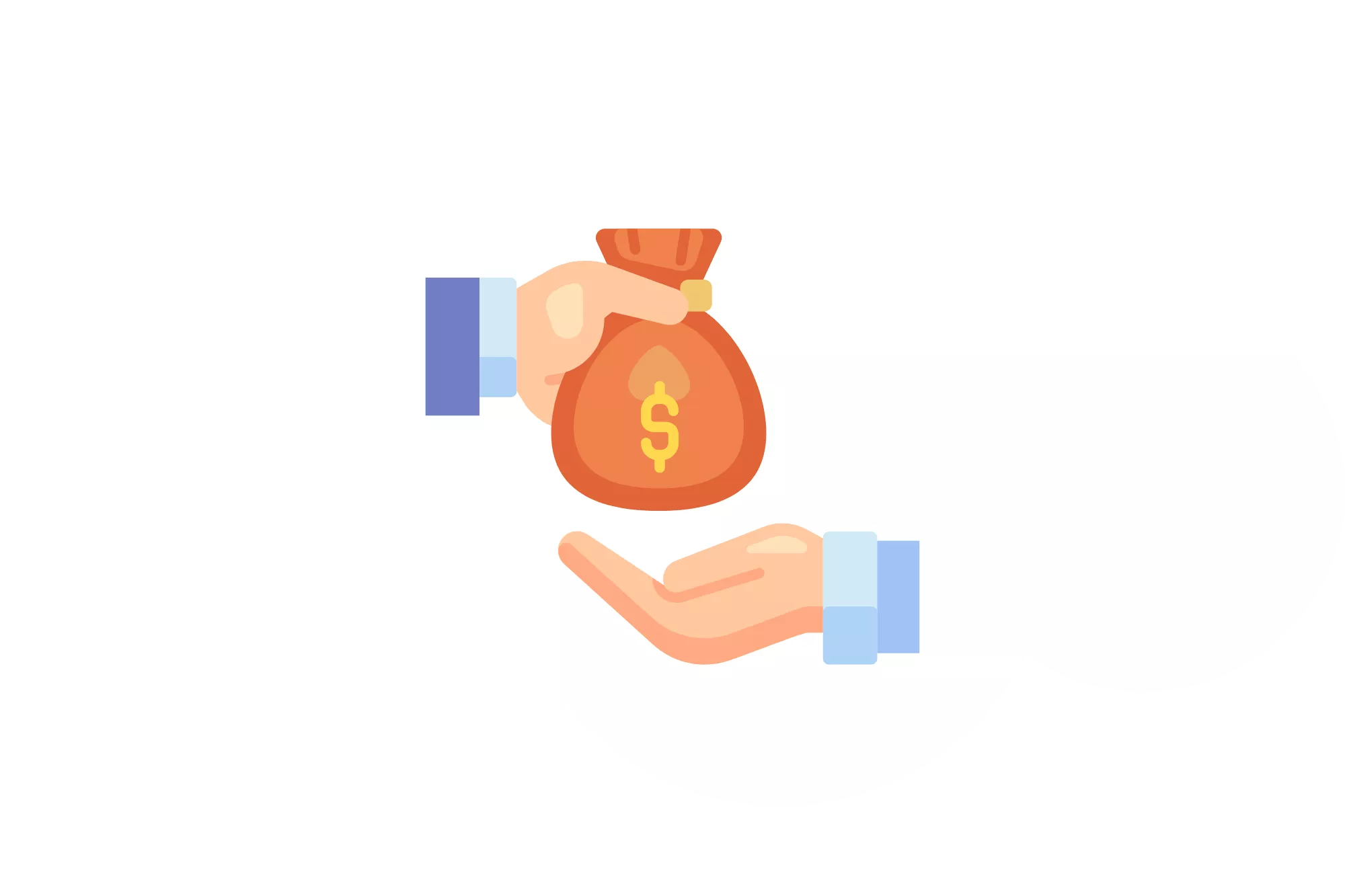
The first step in obtaining small business financing is, quite simply, understanding small business loan requirements. With the United States averaging more than 400,000 new business applications per month, the competition for funding can be fierce for small merchants.[1]United States Census Bureau. “Business Formation Statistics“. Accessed December 13, 2022. While businesses may seek funding from investors and other non-financial avenues, small business loans continue to be a reliable option for new business owners to invest in their growth.
However, lenders must be careful about providing loans to small businesses. The financial landscape can change quickly. A shift in market conditions or a recession can lead to cash flow problems, making it challenging for new businesses to honor their debt obligations. Therefore, lenders have a range of requirements and qualifications that small businesses must meet to be eligible for loans.
In this guide, we explore the ten most common small business loan requirements and qualifications. We also take a deeper look into the Small Business Administration (SBA) loan process, how to increase your chances of approval, and other related topics. Let’s get started getting you funding!
10 Most Common Small Business Loan Requirements and Qualifications
Below are the ten most popular requirements for business loans. However, business loan requirements vary by lender, so do keep in mind that you may be asked for additional information to obtain financing depending on the financier with which you’re applying.
1. How long your business has been established
Lenders want to know how long your business has been operating before they’re willing to provide funding to your company. Unfortunately, nearly 20% of new businesses fail within their first year, and more than 70% fail within a decade of formation.[2]Entrepeneur. “The True Failure Rate of Small Businesses“. Accessed December 13, 2022. As a result, lenders are much more hesitant to finance businesses with limited operational histories. In fact, many traditional lenders and tier-one banks refuse to offer loans to businesses younger than two years old.
2. Personal & business credit ratings
Your personal and business credit scores are usually deciding factors for financing approval. It takes time to build a favorable business credit profile, so new ventures must rely on personal credit scores. Once your business establishes a track record, your personal credit score will be less relevant in the lending process. This is yet another your business’s age is integral to its ability to secure finance—the longer it remains operational, the more it benefits your credit profile.
It’s important to check your personal and business credit scores before applying for a business loan. Fortunately, US law dictates all three major credit reporting bureaus must provide consumers with at least one free credit report per year. Alternatively, there is a fee for checking your business credit score, so keep that in mind.
3. Annual business revenue & profit
Your business’s revenue and profit play a significant role in its creditworthiness. As new businesses don’t have substantial proof of sales revenue, obtaining loans can be much more challenging. Many lenders require six figures in annual revenue for business loan eligibility, meaning you may need to explore alternative funding options if your business doesn’t have significant cash flow.
Likewise, many businesses take between two and three years to turn a profit, so it might be a while until your profits increase your eligibility for small business loans.[3]FreshBooks. “How Long Does It Take to Be Profitable? A Guide for Small Businesses“. Accessed December 13, 2022. Regardless, make sure to keep accurate records and bank statements. Having the correct documentation on hand makes it much simpler to show your annual profits during the loan application process.
4. Debt service coverage ratio
A debt service coverage ratio (DSCR) quantifies your business’s annual net operating income to its total annual debt. So, what is your annual net operating income? It’s your yearly earnings before interest, taxes, deductions, and amortization, also known referred to as “EBITDA.”
To find your debt service coverage ratio, divide your EBITDA by your total annual debt. You should include the value of the debt for which you’re currently applying in this calculation. Let’s explore an example:
Your business’s EBITDA is $200,000 and total debt is $65,000, so you divide $200,000 by $65,000 to find a DSCR of 3.08.
Lenders favor businesses with a DSCR above 1. Anything below one indicates you may struggle to honor your debt obligations.
5. Debt-to-income ratio
Debt-to-income (DTI) ratios are another calculation lenders use to determine your business’s creditworthiness. In its essence, a DTI ratio examines your business’ monthly debt in relation to its gross income.
To calculate your business’s DTI, divide your monthly debt by your gross income. See below for an example:
If your business’s monthly debt is $45,000 and gross income is $65,000, divide $45,000 by $65,000 for a DTI of 69%.
Excessive DTI ratios can also indicate your business may struggle to meet its debt obligations. Maintaining a DTI ratio below 43% can help make your business more attractive to lenders.
6. Collateral or a personal guarantee
Offering collateral to lenders may improve your chances of securing a business loan. Collateral is an asset that a lender can attach to your loan, meaning they can claim the asset if you don’t honor your loan obligations. For example, if your business wants to borrow $100,000, it may offer property it owns as collateral for the loan. A lender can file a lien on the asset as additional security if your business should run into financial trouble.
While we tend to consider physical assets (land, machinery, vehicles) as loan collateral, accounts receivable (AR) can also guarantee a loan. Using business assets to guarantee loans helps protect you from personal liability. However, providing personal guarantees against your assets should be used as a last resort, as it comes with significant financial risk. Unfortunately, if you own a startup business with no assets, personal guarantees may be your only option.
7. Your business’s industry
Your industry also plays a key role in its eligibility for financing. Lenders want to know you operate in a cyclical industry, meaning your business isn’t exposed to volatile market fluctuations. If your business is financially exposed to seasonal fluctuations, you may need to offer additional collateral or other assurances to secure lending.
Likewise, “high-risk” industries—such as cannabis, gambling, and adult entertainment—may be subject to unexpected changes in government regulation. Because regulatory shifts can pose a threat to businesses within these industries, lenders are more apprehensive about providing financing.
8. Intended use of the loan
Are you using the loan to purchase new equipment? Do you want it to contribute to your working capital? Your intended use for the loan often plays a critical role in your lending eligibility.
If you choose to purchase equipment, vehicles, or other assets with the loan, your lender may tie the loan to the asset’s value as collateral. Because this provides additional assurances to the lender, it can lead to lower interest rates.
9. Current legal contracts and agreements
Current legal contracts and agreements play a vital role in the loan application process. If you have financial obligations impacting your ability to repay loans, lenders consider this before making an approval decision. For instance, if you have an outstanding loan with another lender, your new lender will need to know if there are any existing liens on your business’s assets. If so, your new lender cannot sell those assets to recover losses if your business fails to meet its financial obligations.
10. Proposed loan amount
Finally, you must provide a proposed amount for the loan to the lender. Sometimes, lenders will provide approved borrowers with a maximum loan amount. However, being upfront about how much you want to borrow is the best way to ensure you receive the total amount of financing your business needs.
Unlike business credit cards and lines of credit, your business must pay interest on the entire loan balance, even if you don’t use all of it—so only borrow what you need. Otherwise, you’ll pay interest on unused borrowed money.
Documents Needed to Apply for a Business Loan
Tax Returns
Lenders request business tax returns to determine a business’s past revenue and profit. Lenders may also request your personal tax returns if your business doesn’t have a detailed financial history.
Bank and Financial Statements
Providing banking and financial statements is necessary when applying for funding, though each lender has its own requirements of how many months’ worth of statements they’ll need.
Business Licenses and Permits
You need to provide business licenses and permits to your lender, who assesses these documents to ensure your enterprise operates legally. If you don’t have the correct permits, it may be an existential threat to your business. Always verify that your business operates within local, state, and federal guidelines.
Business Plan
A business plan outlines your business’s overall vision for success. It should include the following sections: an executive summary, business description, market analysis, products and/or services sold, marketing strategy, operational strategy, management structure, and financial planning.
Business Registration
You must register your business in order to be eligible for most business loans. Providing proof of business registration during the initial application process verifies your business’s existence and ability to operate.
Social Security Number
Lenders request your personal SSN to check your credit, verify your identity, look up any outstanding debts, and identify any other core application details.
Employer Identification Number
An employer identification number (EIN) acts as an SSN for your business—allowing the government, credit bureaus, and lenders to track financial events associated with your business. Make sure to register for an EIN before you begin applying for loans, as this number is essential in any loan application process.
Details About Other Debt
Lastly, your business must provide details about existing business debts. Lenders need to know if your business has too much financial leverage. If your business already has excessive debt, it significantly reduces your chances of approval for new loans.
Business Loan Application Process
The application process for small business loans typically follows the same procedure, regardless of which lender you choose. Let’s explore the step-by-step process below:
- Decide How Much You Need to Borrow: You don’t want to apply for more than what you need, as larger loans are less likely to be approved.
- Collect Your Documentation & Information: By collecting the required documentation and information listed above, you’ll be ready for immediate submission when you apply for your loan.
- Find a Lender: Find a lender willing to accept loan applications from businesses of your size. There are many traditional lenders offering SBA loans throughout the United States.
- Submit an Application: Most lenders accept online applications, but you should also be able to submit an SBA loan application at a bank if you choose a traditional lender.
- Wait for a Decision: Finally, wait for a decision. The underwriting process can take time, so if you don’t hear back immediately, that’s totally normal. Also worth noting, the closing process for an SBA loan can take up to three months, so you won’t get the loan right away.
While the above outlines the general steps involved in applying for a business loan, issues may arise during the application process, requiring additional input from your business. If a lender needs further clarification on financials or other information, they will contact you during the underwriting process.
Types of Business Loans Available
Beyond traditional business loans, there are many available loan options through which you can secure capital. Depending on your business’s operations, as well as the intended use(s) for the loaned funds, one of the below options may be more beneficial than the tried-and-true business loan:
- Bad Credit Business Loans
- Bridge Loans
- Commercial Loans
- Factory Loans
- Installment Loans
- Inventory Loans
- Microloans
- No Document Loans
- Short-term Loans
- Working Capital Loans
SBA Loan Requirements for New Businesses
Many small businesses in the United States obtain loans via the Small Business Administration (SBA). The SBA backs small business loans, meaning the agency guarantees loans provided by third-party lenders as long as they meet their conditions. This program is aimed at stimulating entrepreneurial investment throughout the United States.
While each loan type has different SBA requirements, below are the necessary qualifications to consider when applying for SBA financing:
- Submission of a feasible business plan
- Operating location within the United States
- Documentation it is a fully-registered, legal for-profit business
- Proof of meeting specific size standards, depending on the loan
- Operations functioning within an eligible industry
- Presentation of a projected cash flow that allows your business to meet its debt obligations
Keep in mind that the above requirements are just the tip of the iceberg. Each SBA loan has its own nuances, so it’s best to speak with potential lenders about the specific requirements of the loan you’re seeking.
Types of Business Loans Available
There is a range of SBA loan options available, some of which are specifically awarded to niche applicants. That said, let’s explore some of the most frequently used SBA loans in more detail below:
- SBA 7(A) Loans: These types of SBA loans have a maximum loan amount of $5 million. Business owners can use them for working capital, equipment, and business expansion.
- SBA Express Loans: SBA Express loans have a maximum loan amount of $500,000 to be used for fast funding, real estate purchases, working capital, and other such purposes.
- SBA 504 Loans: These types of SBA loans have a maximum loan amount of $5.5 million. Business owners may use this funding to purchase land, machinery, and other long-term assets.
- SBA Microloans: SBA Microloans have a maximum loan amount of $50,000. They are used for inventory, supplies, machinery, working capital, and equipment.
How You Get Approved for an SBA Loan

To gain approval for an SBA loan, it’s critical you properly approach the process from the beginning of your loan journey. So, what will improve your business’s chances of approval? Take advantage of the tips listed below:
- Review all loan requirements before submitting an application.
- Use a business plan template or hire a professional to ensure your plan includes all the necessary details.
- Build favorable personal and business credit scores before applying.
- Ensure you have all imperative documentation before submitting your loan application.
Small Business Loan Requirements:
The Next Steps
Understanding the requirements for small business loans is the first step in the approval process, but as you’ve read, it’s far from the last step. By improving your personal and business credit scores, preparing documentation, and developing a business plan, your small business will improve its chances of receiving financing. However, not all industries are created equal, and depending on your business type, it can be difficult to obtain a loan. In this case, you may be best served by partnering with a merchant services provider with experience securing lending for businesses like yours. At PaymentCloud, we take pride in offering numerous forms of business funding options with favorable terms—regardless of your industry type!
How to Qualify for a Business Loan: FAQs
Do small business loans require collateral?
Whether or not your business will need to provide collateral to a lender depends on the type and source of the loan. Some lenders are more strict about collateral requirements, meaning you will need to meet the value of the loan in collateral to be eligible for borrowing.
However, other small business lenders are willing to offer unsecured loans to borrowers that meet a range of conditions, but the interest rates on these loans are likely to be much higher.
Are requirements different for online loans compared to bank loans?
The difference in requirements between online lenders and traditional banks will vary from lender to lender. However, in many instances, banks are known for having a longer, more document-heavy application process.
Will a business loan require a down payment?
Again, your business loan requirements will depend on the type of loan and your lender. Some lenders don’t require down payments or collateral to access funding, while others need strict assurances.
How are the requirements for a startup business loan different?
Startup business loans are more challenging to secure, especially if you want to partner with a tier-one bank or traditional lender. Traditional commercial lenders typically provide financing to more established businesses. However, if you need a loan for a new startup business, submitting your personal credit score in the application process may help you gain approval.
With startup loans, lenders will rely more on your personal financial situation or your ability to offer collateral. In the absence of long business history, personal financial information will be crucial.
Do you need good credit for a business loan?
Yes. If you are applying for a business loan, you will need good personal or business credit. Lenders will look to the owner’s personal credit for businesses without a strong credit profile to determine creditworthiness. Attaining loans for new ventures will often be challenging, so don’t underestimate the power of an excellent personal credit score.
How difficult is it to get approved for a business loan?
Obtaining business loans won’t be easy for new businesses—new enterprises will likely need to offer assets for collateral and provide personal credit information during the due diligence process. However, businesses with long revenue histories and strong business credit scores should have an easy time accessing loans.
Do you need a business plan to get a loan?
In most cases, lenders want to see a concrete business plan before offering to finance you. If you apply for SBA loans, you must submit a business plan along with your application.
What is considered a small business loan?
A small business loan is a cash loan provided to small businesses to cover working capital and other costs. These loans can vary in size, interest rate, and loan term. Small business loans differ from lender to lender.
What size of a business loan can I get to start my business?
This will depend on various factors, including your business size, your personal credit history, current assets, potential collateral, and other details. Make sure you compare lenders before accepting a financing offer—choosing a lender with affordable loan terms is critical.
What if I don’t need the entire amount I am approved for?
If you don’t need the entire amount your lender approves you for, speak to them about reducing the loan’s value. If you borrow more than you need, you will still need to pay interest on the loan’s total balance, meaning you will be overpaying for financing. Term loans do not operate like revolving credit, so there’s no advantage to being approved for more money than your business requires.
Who qualifies for a small business loan?
Lenders have their own definitions for what constitutes a “small business.” With the SBA, each industry has its own definition of small business. Most manufacturing companies with 500 employees or fewer, and most non-manufacturing businesses with average annual receipts under $7.5 million, will qualify as small businesses.[4]U.S Small Business Administration. “Basic Requirements“. Accessed December 13, 2022.
Are first-time business loan requirements different?
Usually, acquiring your first business loan will be challenging if you don’t have a financial history. Once you establish a business credit score and dependable revenue numbers, borrowing money from lenders will be much easier.







